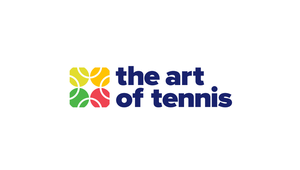Ways to help develop a better culture at your tennis program

At Scarborough Tennis Academy, I am proud of the culture we have developed throughout our junior program and club. We work with a set of values which for the most part, promotes teamwork, encourages constant improvement and everyone aims to be the best that they can both individually but also for the Academy and Club.
Getting the culture to reach all areas of the coaching program and club membership is a huge challenge but one that tennis is general, doesn’t actually do that well. Growing in a country footy culture, I felt the strength and unity of a club, the passion from the fans, family, players, coaches and administration. Tennis environments at their best are good, social places with friendly people and positive vibes but at their worst can seem very shallow places with a handful of individuals rather than a committed member/training base. For juniors, I strongly believe they need to feel like their tennis academy/club is a safe, second home which gives them a release from the pressures of school and provides a healthy and active way to have fun and learn how to deal with challenges.
Some specific areas that have worked well:
- Independence – Encouraging the children of the program to be independent and make the tennis journey about them. This extends to them being responsible for carrying their gear through to being responsible for solving the on court problems, challenges and setbacks. Mum and Dad do the great job of driving them to tennis, watching them play and supporting them (note: clapping not shouting instructions..) but the child is in charge of their own tennis game.
- Leadership – The best players in the class or team are the leaders, give them opportunities to display leadership. Educate player and parents that being the best in the class or team offers important opportunities to build leadership and confidence. Then once they build that confidence, they can break through to the next level easier. In so many cases, racing up the ladder is detrimental.
- Control what you can control – Most goal setting is focused on process type goals, not outcome goals. This gives more power to the players who can aim to get 20 serves out wide rather than focus on reaching say a quarter final which is largely out of their control. The achievements will come as a result of focusing on the process. Largely ignore rankings/ratings/seedings/division but instead focus on your game. Trying to get a little bit better every day will compound fast plus its put your mind in the moment rather than in the future or past.
- Staying positive – Encouraging the positive use of language. Self talk should not be ‘I don’t want to double fault’ but ‘I want to serve with clearance to the corner.’ – How is the feedback given to the child? Is it is being lectured to them by someone who just watched the game or can the child themselves, come up with some ideas on what they would do different next time? Always remain optimistic that they will be able to wake up tomorrow and have another try.
- Take responsibility – If a player loses their match, it should never be the fault of the weather, the court, the balls, the racquet, the grip, the coach, the tournament organiser, the umpire or even the tummy bug or late night that they had yesterday. None of it should be mentioned. It only serves to promote a ‘poor me’ mindset and teaches the kids that if things are not going well, that they can blame something outside of them for any losses or adversity. This will destroy their resilience quicker than anything.
So these are just 5 areas that have helped us and it seems to be having not only a impact on the culture but also the performance, particularly with their team tennis. The importance part moving forwards is to make sure that we as a coaching team, educate new players and families into this belief system as early as possible.
Cheers
Rick Willsmore
Head of Coaching
Scarborough Tennis Academy
















